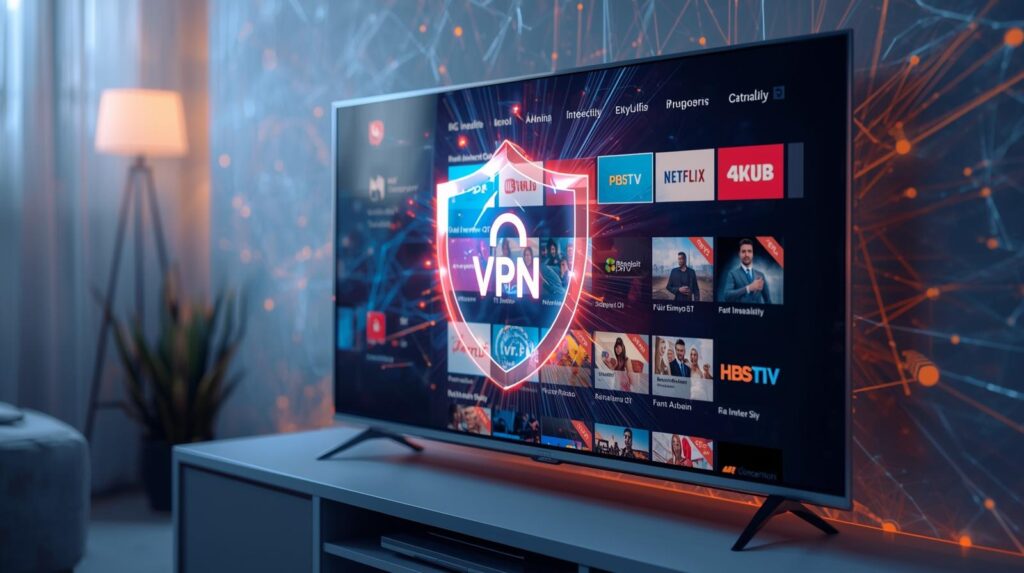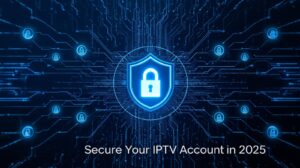Do You Need a VPN for IPTV? Pros & Cons Explained (2025 Guide)
As IPTV (Internet Protocol Television) becomes one of the most popular ways to watch live TV, movies and sports online, many users are asking the same question — do I really need a VPN for IPTV? While some consider VPNs optional, others treat them as essential for secure and uninterrupted streaming.
In this guide, we’ll explain exactly what a VPN does for IPTV, explore its advantages and disadvantages and help you decide whether it’s truly necessary for your setup in 2025.
Understanding VPNs and IPTV
A VPN (Virtual Private Network) encrypts your internet traffic and routes it through a secure server, hiding your real IP address and location. This not only keeps your online activity private but also allows you to access geo-restricted content from different countries.
On the other hand, IPTV delivers live TV and on-demand media over the internet instead of through traditional satellite or cable. Depending on your service provider, IPTV can include legal, licensed services or unofficial third-party ones.
Since IPTV streams directly through your internet connection, the way your ISP (Internet Service Provider) and other entities handle your traffic can significantly affect performance — and this is where a VPN often helps.
how to watch IPTV on Smart TVs
Pros of Using a VPN for IPTV
- Protection from ISP Throttling
Many ISPs monitor user activity and intentionally slow down data-heavy services like IPTV, YouTube or Netflix — a practice called throttling. A VPN encrypts your traffic, preventing your ISP from identifying what you’re streaming. This ensures smooth playback with less buffering or freezing.
- Access to Geo-Restricted Channels
Some IPTV providers limit certain channels or content based on regional licensing agreements. For example, a sports channel available in the UK may not stream in the USA. A VPN lets you connect to a UK server and unlock that region’s IPTV lineup easily.
- Enhanced Privacy and Security
Streaming IPTV without a VPN exposes your real IP address. This means your location and viewing habits could potentially be tracked. A VPN hides your identity, protecting you from intrusive monitoring and ensuring that your online activity remains confidential.
- Avoiding ISP or Government Restrictions
In some countries, ISPs block access to specific IPTV domains or apps. A VPN helps bypass these restrictions by routing traffic through private servers. This allows you to connect to your IPTV provider even if it’s blocked in your region.
- Safe Use of Third-Party IPTV Apps
Not all IPTV apps are officially available on platforms like Google Play or Amazon Store. Some come from independent sources that may not be as secure. Using a VPN adds a vital layer of protection when accessing or testing third-party IPTV applications.
best free IPTV apps and trials
- Protection on Public Wi-Fi
If you stream IPTV on public or shared Wi-Fi networks, a VPN encrypts your data and keeps it safe from hackers or data snooping.
Cons of Using a VPN for IPTV
While VPNs offer strong advantages, there are a few drawbacks worth considering.
- Slight Speed Reduction
Since VPNs encrypt your data and reroute it through remote servers, a small decrease in speed is natural. However, with modern protocols like WireGuard and high-speed VPNs, this drop is minimal and often unnoticeable when using premium services like ExpressVPN or NordVPN.
- Compatibility Challenges
Some IPTV apps may not work properly if the VPN server location doesn’t match the IPTV service’s region. You may need to test multiple servers to find one that delivers the right channels.
- VPN Setup Complexity for New Users
Beginners may find VPN setup confusing — especially on devices like Smart TVs or set-top boxes. However, many VPNs now offer apps for Firestick android TV and routers, simplifying installation significantly.
- Subscription Cost
A premium VPN is not free. Although many cost only a few dollars per month, it’s an additional expense on top of your IPTV subscription. Free VPNs are not recommended, as they often have speed caps, ads or even data logging issues.
When You Should Use a VPN with IPTV
You should strongly consider using a VPN if:
- Your IPTV streams constantly buffer or freeze despite good internet speed.
- You’re using IPTV services that are not officially licensed in your country.
- You want to access IPTV channels from other regions.
- Your ISP has a record of throttling or blocking IPTV content.
- You value privacy and don’t want your streaming activity tracked.
When You Might Not Need a VPN
You can stream IPTV without a VPN if:
- You’re using a fully legal IPTV provider with regional licensing (like Hulu Live, Sling TV or YouTube TV).
- Your ISP doesn’t throttle streaming traffic.
- You only watch local or region-available channels and have no privacy concerns.
Even in these cases, using a VPN can still enhance privacy, but it’s not strictly required.
Legal Considerations of Using a VPN for IPTV
Using a VPN for IPTV is completely legal in most countries, including the USA, Canada and the UK, as long as you are not streaming copyrighted or pirated content. VPNs are legitimate privacy tools used by millions for secure browsing, remote work and personal protection.
However, if your IPTV source is not licensed or distributes copyrighted content illegally, a VPN will not make it legal — it only masks your activity. Always verify that your IPTV provider complies with local laws and streaming regulations.
Recommended VPNs for IPTV in 2025
If you decide to use a VPN, here are three trusted options that work flawlessly with most IPTV services:
- ExpressVPN: Best for speed and consistency; ideal for 4K IPTV streaming.
- NordVPN: Excellent for security and unblocking geo-restricted content.
- Surfshark: Affordable, reliable and supports unlimited devices.
Each of these VPNs supports Firestick android TV, Windows, macOS and routers — making them perfect for IPTV streaming.
Final Thoughts
So, do you really need a VPN for IPTV? The answer depends on how you use your IPTV service. If your priority is privacy, access and uninterrupted performance, then yes — a VPN is highly recommended.
It not only protects you from ISP throttling and tracking but also opens up access to international content while keeping your activity secure. However, if you use a legally licensed IPTV service and have no issues with your ISP, you can technically stream without one.
Still, in an era where online privacy and access restrictions are increasingly common, a VPN is more of a smart investment than a luxury. For IPTV users in 2025, it’s the simplest way to ensure a smooth, private and unrestricted streaming experience.





1 thought on “Do You Need a VPN for IPTV”
Pingback: Optimize Internet Speed for IPTV in 2025